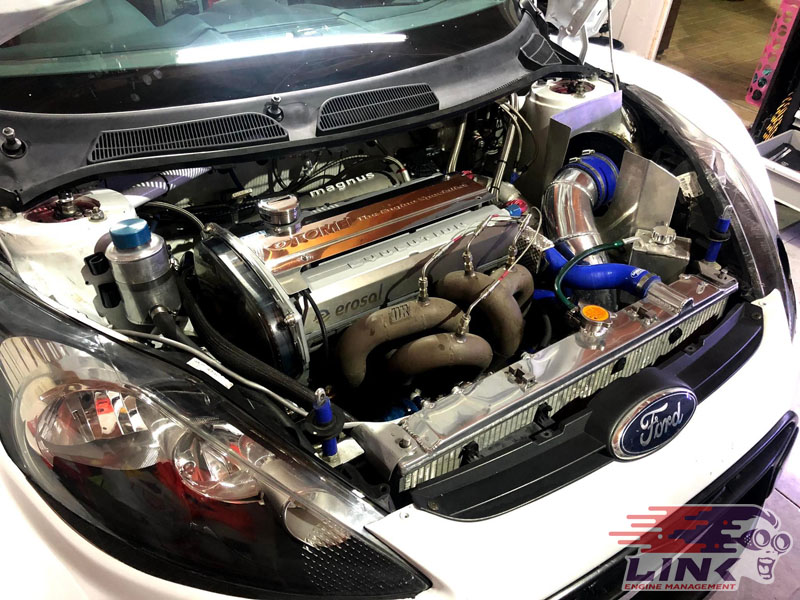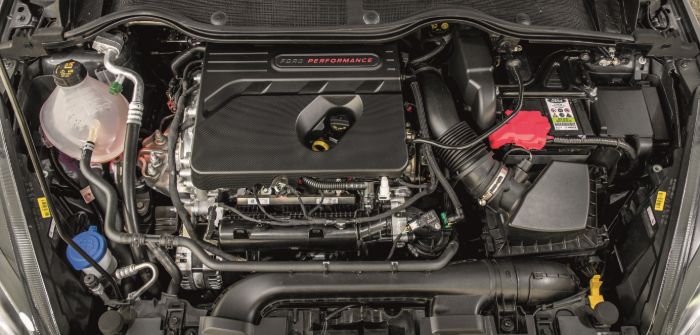Upgrade Your Ford Fiesta Engine for Better Fuel Economy and Power
Upgrade Your Ford Fiesta Engine for Better Fuel Economy and Power
Blog Article
The Future of Engines: Developments Driving Lasting Power Solutions
As the automobile market navigates the necessary change in the direction of sustainability, the future of engines is increasingly specified by groundbreaking advancements. Electric engine innovations, along with encouraging growths in hydrogen fuel cells and biofuels, are improving the landscape of power services. The appearance of hybrid systems better complicates this advancement, providing both chances and challenges to reduce exhausts effectively. Coupled with the integration of synthetic intelligence in engine design, these technological strides increase vital questions regarding their lasting feasibility and impact on conventional standards. What might this indicate for the market and consumers alike?
Electric Engine Advancement
The development of electrical engine advancements represents an essential change in the aerospace and vehicle industries, driven by the urgent demand for lasting alternatives to fossil gas. This shift is defined by significant developments in battery modern technology, power electronics, and electric motor layout, which jointly enhance the performance and efficiency of electric engines.
Recent technologies have led to the production of lighter, much more energy-dense batteries, such as lithium-silicon and solid-state batteries, which assure longer varieties and shorter charging times. Furthermore, renovations in electric motor effectiveness, such as making use of permanent magnets and progressed cooling down systems, make it possible for electrical engines to operate properly under varying conditions. These improvements not just enhance vehicle performance yet likewise contribute to a decrease in total energy intake.
Additionally, the assimilation of sophisticated software program algorithms has enhanced power monitoring in electric automobiles, permitting regenerative stopping and anticipating billing techniques. As manufacturers significantly welcome electric propulsion, the aerospace and automobile fields are witnessing a standard change towards greener modern technologies. This advancement not just fulfills governing demands yet also aligns with consumer preferences for eco-friendly transport remedies, solidifying electrical engines as a foundation of future sustainable mobility.
Developments in Biofuels
As the aerospace and automotive industries progressively prioritize lasting energy resources, advancements in biofuels become a corresponding option to electrical engines. Biofuels, obtained from natural materials such as crops, waste, and algae, present an ingenious method for lowering greenhouse gas exhausts and dependence on fossil fuels.
Current research study has actually focused on boosting the efficiency and sustainability of biofuel manufacturing. Second-generation biofuels utilize non-food feedstocks, decreasing competitors with food supply and lowering ecological influence. Moreover, advancements in synthetic biology have allowed the design of microorganisms to create biofuels better, resulting in greater yields and reduced production prices.
Additionally, the growth of drop-in biofuels permits seamless combination into existing infrastructure, allowing a smoother transition for sectors commonly reliant on fossil fuels. ford fiesta engine. These gas can be utilized in existing engines without adjustments, promoting their adoption across numerous industries
Investments in biofuel innovation, together with supportive policies, are important to drive innovation and scalability. As the worldwide area seeks to fight climate modification, biofuels offer a pragmatic, immediate option that aligns with the overarching goal of sustainability in transportation and aviation.
Hydrogen Fuel Cell Modern Technology
An expanding variety of business and scientists are exploring hydrogen fuel cell technology as a feasible option to conventional source of power in transport and power systems. This modern technology converts chemical power from hydrogen right into electricity with an electrochemical response, with water as the only by-product, making this website it an ecologically pleasant option.
The core of hydrogen gas cells is the gas cell stack, where hydrogen molecules are divided right into electrons and protons. The circulation of electrons creates electrical power, while protons move with a membrane layer to incorporate with oxygen from the air, developing water. This procedure leads to high performance and reduced exhausts, positioning hydrogen gas cells as an important gamer in the transition to lasting power.
Substantial advancements have been made in improving the toughness and performance of fuel cells, alongside decreasing costs with ingenious production strategies. The advancement of hydrogen manufacturing approaches, such as electrolysis powered by eco-friendly energy sources, improves the sustainability of the general system. As infrastructure for hydrogen refueling expands and manufacturing approaches come to be extra reliable, hydrogen fuel cell technology holds terrific promise for decarbonizing various markets, consisting of heavy-duty transport and fixed power generation.
Crossbreed Equipments and Their Influence
Crossbreed systems stand for a substantial advancement in lasting engine modern technology, merging standard interior burning engines with electrical propulsion to optimize energy effectiveness and lower emissions (ford fiesta engine). This double technique allows vehicles to make use of both power sources, allowing greater flexibility in energy consumption and decreasing reliance on fossil gas

In enhancement to environmental benefits, hybrid systems use consumers a sensible change in the direction of fully electric vehicles. They minimize range stress and anxiety by combining the ease of fuel with the advantages of electric propulsion, making them an eye-catching alternative for a larger target market.
The Function of AI in Engine Layout
Leveraging advanced formulas and artificial intelligence techniques, the automobile industry is increasingly integrating fabricated knowledge (AI) into engine style processes. AI enhances the efficiency and performance of style by analyzing huge datasets to identify ideal arrangements and efficiency criteria. This capability permits engineers to simulate various operating problems and anticipate engine actions under numerous circumstances, considerably reducing the moment and cost connected with conventional prototyping techniques.
Moreover, AI assists in the growth of sophisticated materials and burning procedures tailored for sustainability. By maximizing fuel effectiveness and decreasing discharges, AI-driven layouts align with global initiatives focused on minimizing the carbon footprint of auto engines. Artificial intelligence algorithms can also anticipate upkeep requirements, resulting in improved dependability and long life of engine components.
Moreover, AI is important in the assimilation of electrification innovations, such as hybrid systems, where it can maximize battery management and energy recuperation page procedures. As the market relocates towards more sustainable power options, the duty of AI in engine style becomes significantly essential, driving development and enhancing the performance of future engines. Ultimately, the partnership in between AI and engine layout declares a new period of smarter, cleaner, and more efficient automobile innovations.

Verdict
To conclude, useful link the future of engines is being formed by a convergence of ingenious modern technologies that prioritize sustainability. Electric engine improvements, biofuel developments, hydrogen fuel cells, and hybrid systems jointly add to a substantial reduction in discharges and ecological impact. Furthermore, the combination of synthetic intelligence in engine layout boosts effectiveness and performance. These transformative options highlight a commitment to developing a cleaner, much more sustainable vehicle landscape, eventually profiting both culture and the environment.
Electric engine innovations, together with encouraging growths in hydrogen fuel cells and biofuels, are improving the landscape of power solutions. Furthermore, improvements in electric motor performance, such as the use of irreversible magnets and advanced cooling systems, enable electrical engines to operate efficiently under differing problems. By optimizing fuel efficiency and lessening discharges, AI-driven styles straighten with global campaigns aimed at minimizing the carbon footprint of vehicle engines. As the sector relocates in the direction of more sustainable power remedies, the duty of AI in engine style comes to be significantly essential, driving development and improving the efficiency of future engines. Electric engine improvements, biofuel growths, hydrogen gas cells, and crossbreed systems jointly contribute to a considerable decrease in exhausts and environmental impact.
Report this page